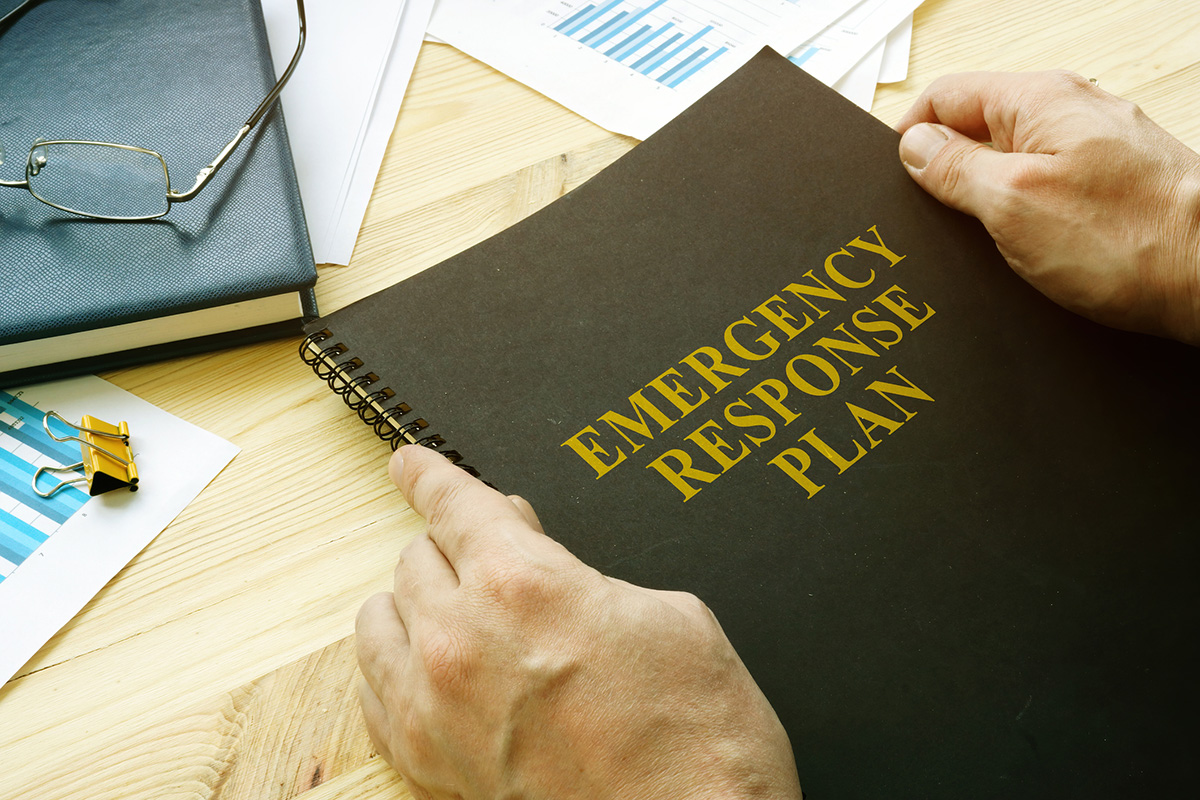Emergency managers work in a variety of organizations – government agencies, nonprofit organizations and private companies – but they all serve a similar purpose: protecting and serving their communities before, during and after natural disasters and other dangerous and unexpected events.
In this article, we explore careers in emergency and disaster management, including an industry outlook and typical education requirements.
What Do Emergency Managers Do?
Emergency management is a comprehensive profession that combines interpersonal skills and management abilities. Emergency management positions can be found in the public or private sector and within civilian or military organizations.
Responsibilities can vary, but the day-to-day work of emergency managers typically includes:
- Developing and implementing emergency response procedures.
- Coordinating interagency operations.
- Creating and conducting training exercises.
- Assisting with public relations and communications.
1. Emergency Response Procedures
One of the most important responsibilities for an emergency manager is developing emergency response procedures. There is almost always an element of improvisation and quick adjustments during emergencies, but documenting procedures beforehand lays a foundation for the decisions required in every moment. After emergency managers quickly analyze a crisis, they can then apply the appropriate procedures they’ve developed ahead of time.
Organizations of all types should have a written document in place – what the Occupational Safety and Health Administration calls an Emergency Action Plan – that clearly outlines who does what for an organization during an emergency. Whether it’s a fire department serving a community or a private business protecting their employees and assets, planning is critical.
2. Interagency Operations
Emergency managers working for government agencies often act as links between elected officials and first responders before, during and after emergencies. Their job is to turn the policies developed by lawmakers into real-world strategies. In the private sector, this can also be true for large organizations or corporations with employees who are spread throughout multiple departments or even multiple locations.
Due to this hierarchy, emergency managers must have strong communication and management skills. Coordinating interagency operations before emergencies happen ensures that connections between the various areas remain strong and each department is ready to act. Emergency managers typically meet with their various stakeholders and confirm all parties are on the same page. This can also be a good time to prepare for the various legal ramifications that can unfold during emergency response situations.
3. Training Exercises
Training exercises are an important part of ensuring employees are ready for emergencies. Reading through procedures is helpful, but simulating an emergency and walking through plans as a group can help employees retain information better. Emergency planning exercises, such as the ones provided by the Federal Emergency Management Agency, help organizations identify and correct weaknesses in their response procedures.
4. Public Relations and Communications
Many emergencies require frequent communication between the organization and the public. This process has become more complicated in recent years, as social media now provides more timely access to information while also providing more opportunities for misleading or incorrect information to spread.
When communicating with the public, emergency managers frequently work closely with public relations professionals – along with their elected officials or executives – to distribute information to their communities directly and through media outlets. In smaller organizations without a public relations team, an emergency manager may need to fill the role of primary communications contact.
Emergency Management Careers Salary and Outlook
According to the Bureau of Labor Statistics, emergency management directors had a median annual wage of $76,730 in May 2021. The highest 10% earned more than $133,580, and the highest-paying industry for emergency managers – with a median salary of $125,930 – was professional, scientific and technical services.
The BLS reported employment of 10,600 emergency management directors in 2021, with about 900 openings projected each year from 2021 to 2031.
Emergency Management Education
According to the BLS, emergency management directors typically need a bachelor’s degree. Graduate degrees can also help employees gain an edge when looking for advancement.
Here at Columbia Southern University, our master’s degree in emergency management is board-approved by the Institute of Hazardous Materials Management. The program features classes that cover topics such as:
- Case studies in natural catastrophes and man-made disasters.
- Emergency management leadership and decision making.
- Global terrorism.
- Interaction of hazardous materials.
- Interagency disaster management.
- Legal aspects of emergency services management.
- Risk management.
- Weapons of mass destruction.
Many of these topics are also covered in the emergency services management concentration for CSU’s master’s degree in public administration.
Getting Started
If you’re interested in starting a career in emergency management, education is a good place to start. To learn more about CSU’s online degree programs in emergency services management, public administration and more, visit our website.
Multiple factors, including prior experience, geography and degree field, affect career outcomes, and CSU does not guarantee a job, promotion, salary increase, eligibility for a position, or other career growth.





